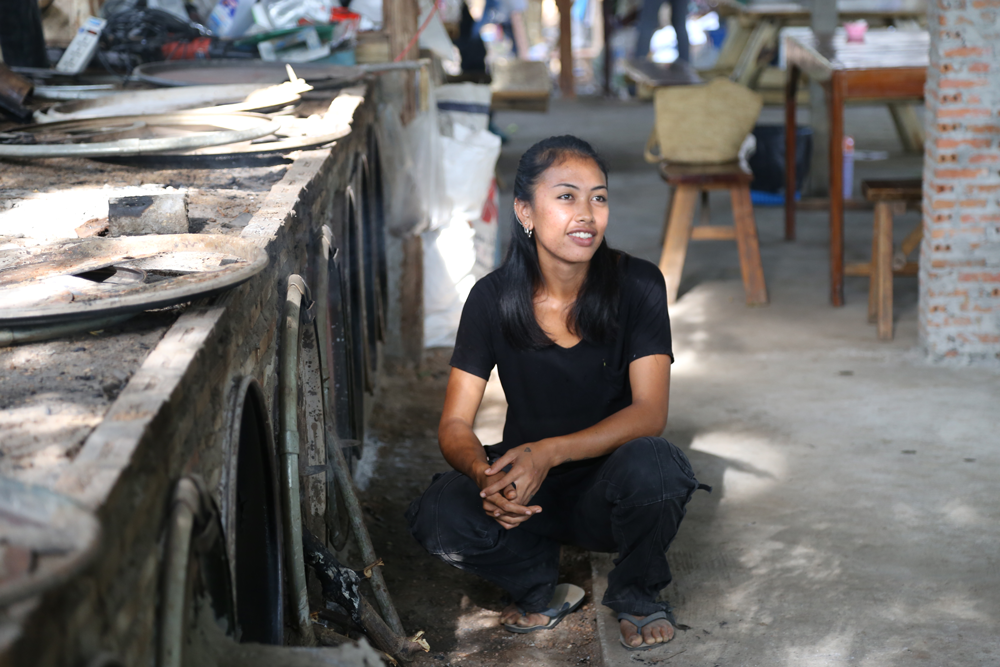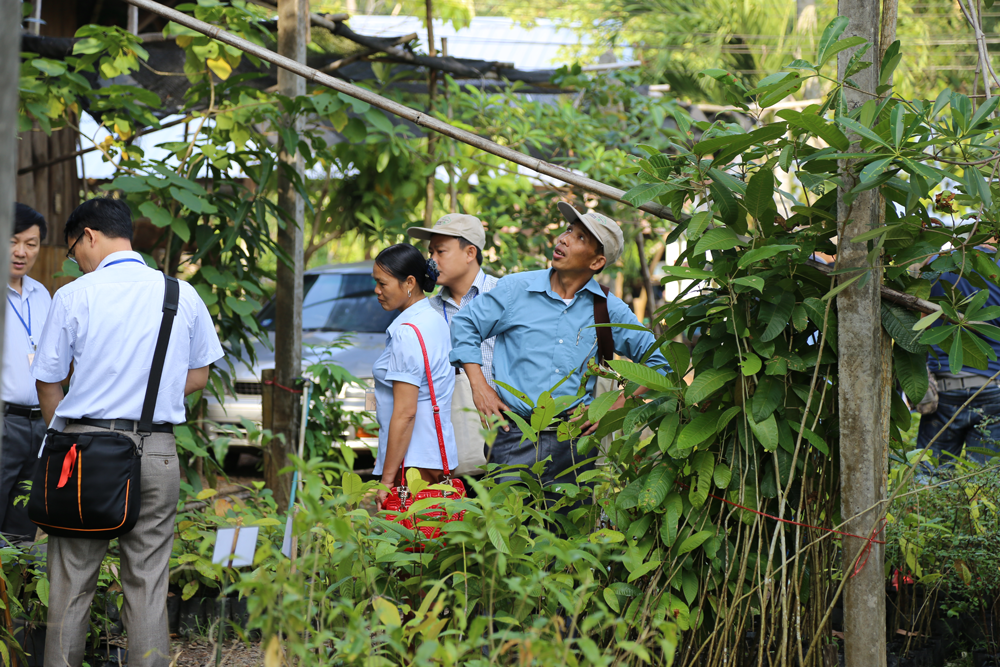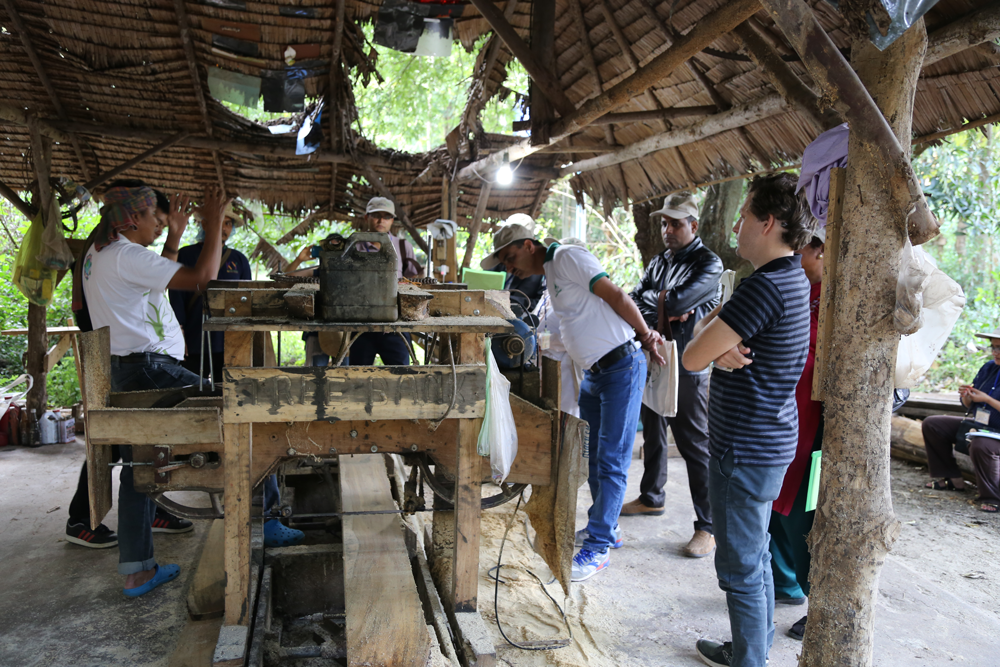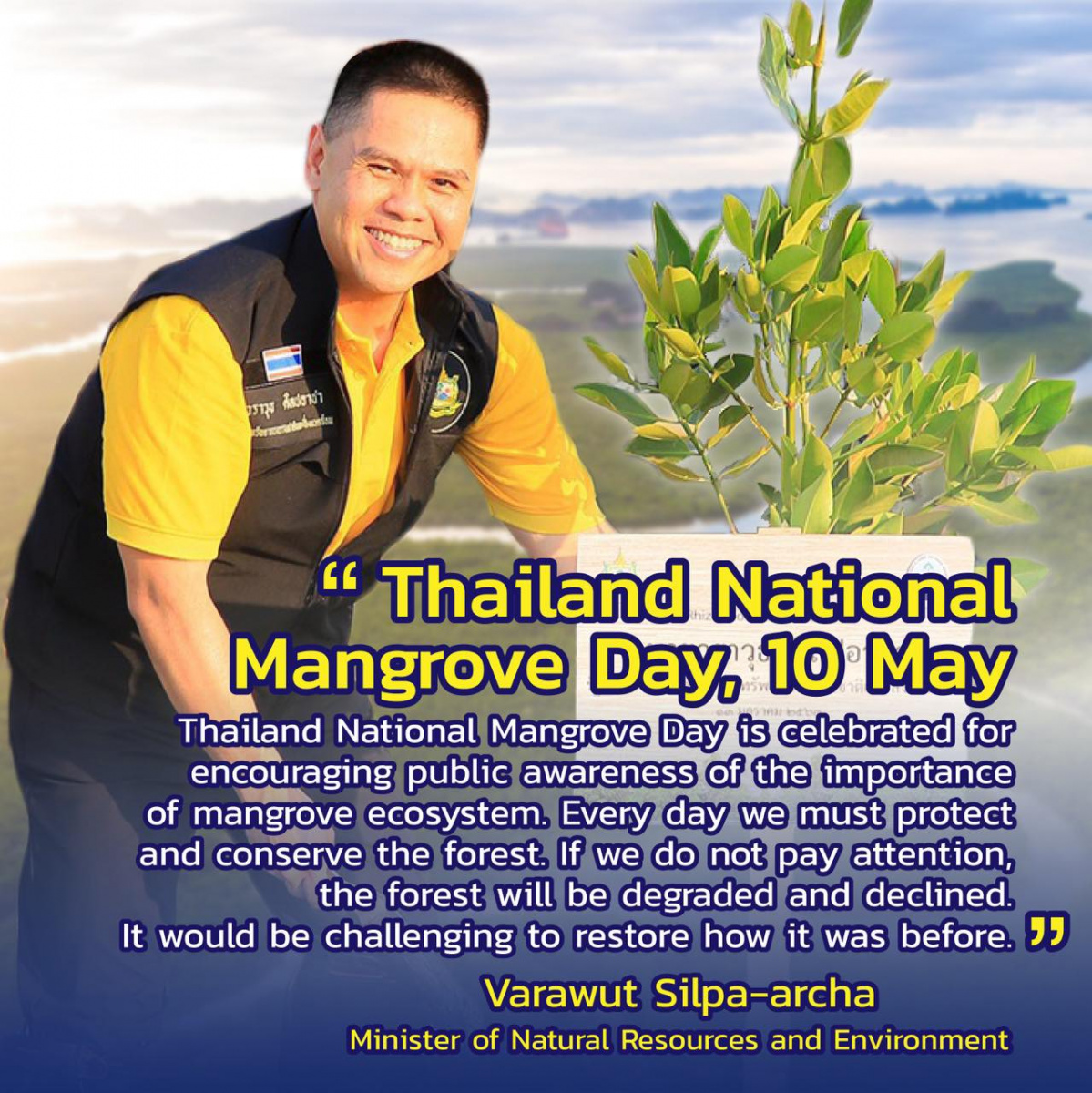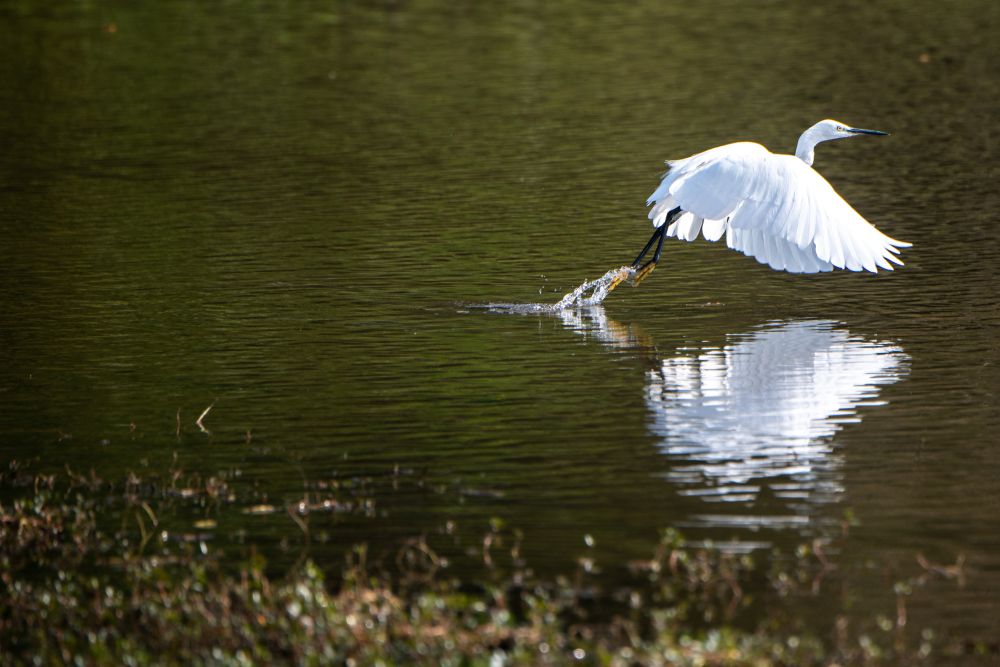It started with ten farmers sitting around a fire: a tale of a community forestry enterprise
Nearly a decade has passed since a small group of farmers gathered around a fire to lament the increasing costs of their trade, and the toll that modern practices and inputs was taking on their land. As the embers of the fire settled, they resolved to take action to improve their farms, livelihoods and the community by contributing their individual skills into what would eventually become the very successful Khao Chakan Agroforestry Community Enterprise (KCAE). Now they are sharing their model of successful community forestry with peers from Myanmar, Nepal and Viet Nam.
In the eastern border province of Sa Kaeo, Thailand a regional group of farmers, foresters and farmers’ association representatives met with Thai colleagues at the Khao Chakan Agroforestry Community Enterprise (KCAE) to learn from each other and share ideas. The exchange visit, sponsored by the Forest and Farm Facility (FFF) and hosted by RECOFTC – The Center for People and Forests, was set up to accomplish three objectives:
- exchange the approaches, cross-cutting issues, challenges and opportunities on the management and governance of forest and farm producer organisations;
- identify possible interventions to strengthen management and governance, and reduce policy barriers; and
- adapt and apply lessons learned from the site in one’s own national context.
The participants in the exchange visit learned that the KCAE started as a grass roots concept and quickly blossomed into a community forestry enterprise with 70 members – but its impact goes far beyond simple profit. In the beginning, the ten farmers rented several hectares of sugar cane fields, with each farmer contributing a unique skill or passion to the group. They invested in seedlings and started a nursery. From that point, they were able to reforest a portion of the land with an incredible array of trees. After two years of communal work, they began to see returns on their investment in the forms of charcoal production from fallen branches and wood vinegar produced as a charcoal bi-product – and organic compost turned into fertiliser from leaves and other biological material (largely collected on site). The group of farmers become so prolific that their capacity outweighed their own needs, so they applied and received legal authority to sell their products (charcoal, seedlings, wood vinegar, organic pesticide, gardening services and organic fertiliser). With the profits they started a wood milling and simple furniture business, and installed a social benefits system that members could draw from to defray the costs of big events like weddings and funerals. All the while, their assets (literally trees) continued to grow. Investments in machinery and infrastructure followed.
Mostly sold and consumed locally, the products were both effective and increasingly popular; and the word spread. Other community members invested in the KCAE and contributed labour as well as money to the enterprise. However, a sustaining key to the success of the enterprise is its devotion to education. Community members as well as others from around the country began hearing about the success of the enterprise led by farmer and retired professor, Dr. Krirk Meemungkit. Enterprise members realised the value of education and institutionalised the practice of teaching others. A demonstration charcoal kiln, an instruction area and a communal approach to sustainable business practices became an integral component for all those involved with the enterprise. Now, even non-members come to the KCAE to learn and to take sustainable forestry enterprise techniques back to their communities. All they need to offer KCAE in return is their labour while they remain at the facility. Everyone benefits, and vital community forestry enterprise concepts are propagated and spread.
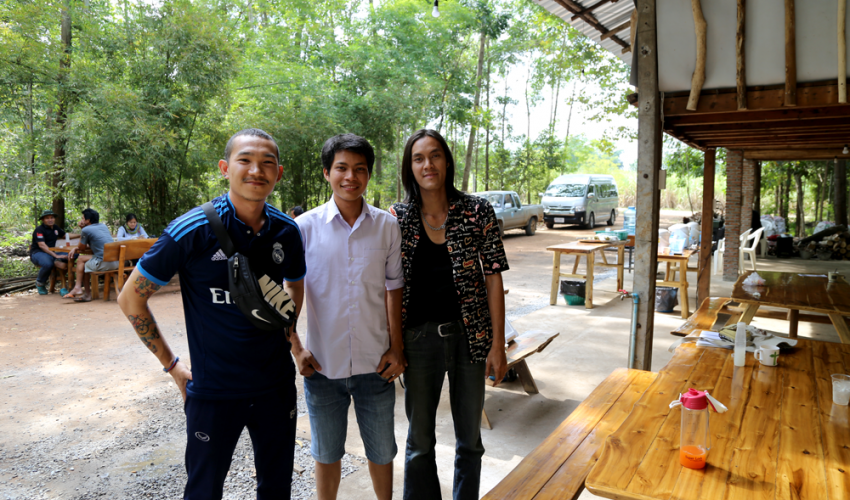 Photo: IUCN GFCCP
Photo: IUCN GFCCP
During the exchange visit with the participants from Myanmar, Nepal and Viet Nam, a group of young Thai women and men at the facility were both learning from the KCAE and living as a transient community of strangers, united in their quest for knowledge and desire for a healthy and sustainable way of life. They shared in a mantra from the late King Bhumibol Adulyadej who championed the “sufficiency economy philosophy” which essentially supports agroforestry as a sustainable way forward for his people. Those involved with the KCAE don’t just repeat this philosophy – they live it.
As the farmer and small land holder delegations from neighbouring countries learned from the KCAE, reflected on the merit of the concepts in their own countries and shared their experiences with others, a true exchange of ideas across countries grew. In the end, although there may be no single right way to create and maintain a successful community forestry enterprise; there is no doubt that when a group of concerned farmers sit around a fire, a modest spark can trigger a successful and sustainable future.
The exchange visit event was organised by RECOFTC, and took place with support of the FFF. Hosted at FAO, the FFF is a global partnership between FAO, IIED, IUCN, and AgriCord that aims to promote sustainable forest and farm management by supporting local, national, regional and international forest and farm producer organisations for improved livelihoods and decision-making over forest and farm landscapes.
